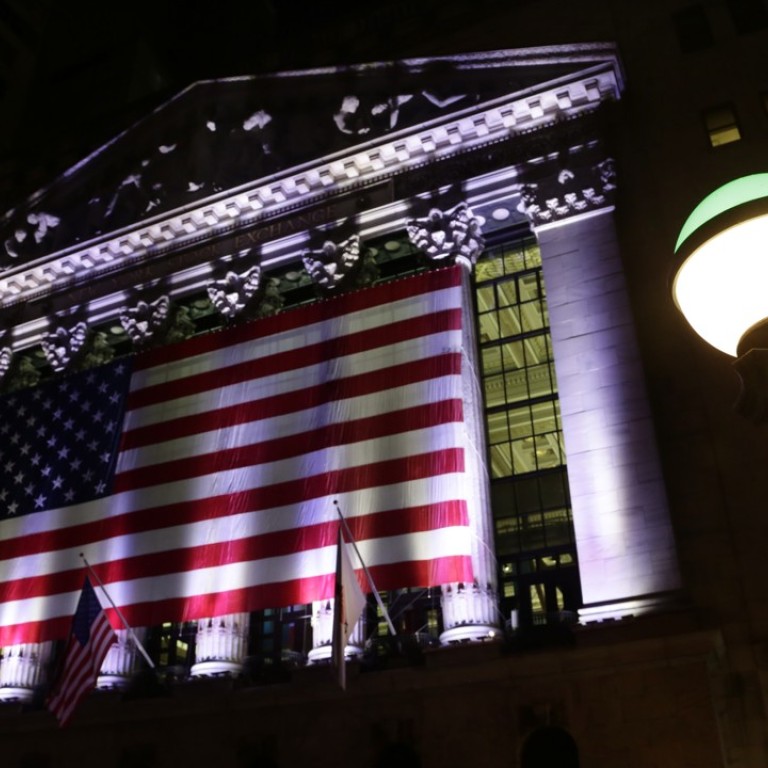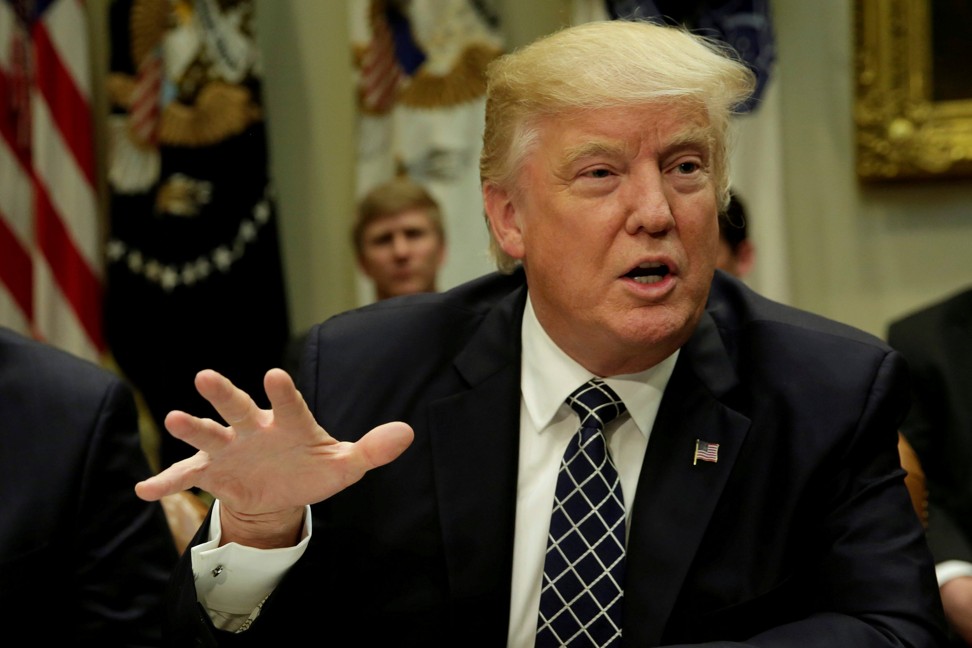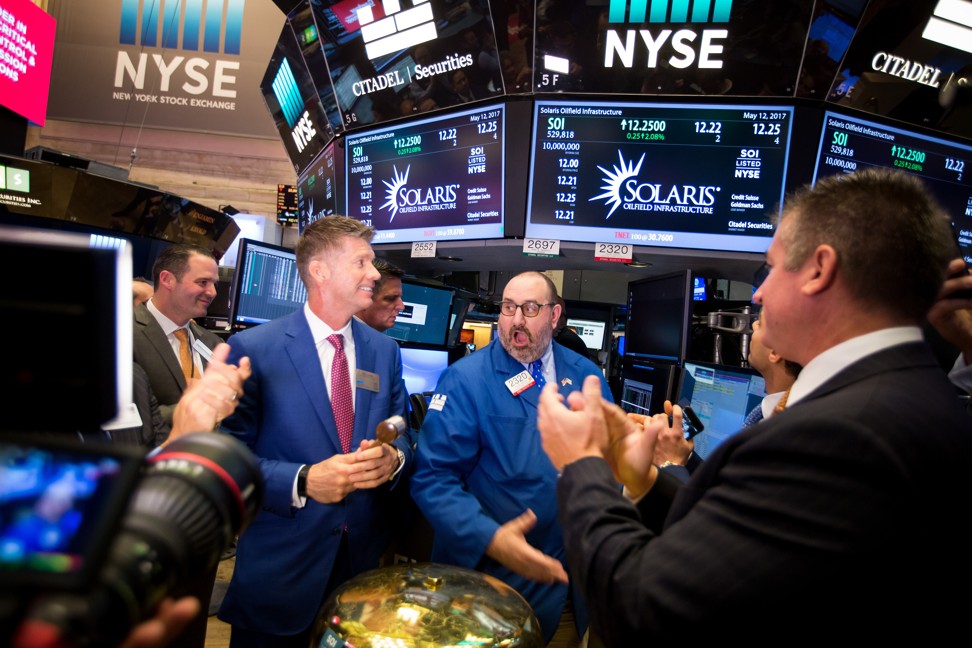
Opinion: Improving fundamentals justifies market confidence – but exceptionally low levels of volatility also fuelling asset bubbles
Current commentary and analysis focus on the dangerous disconnect between somnolent markets and a plethora of risks confronting international investors and traders
Another week, another flurry of news articles and investment research reports warning of the risks posed by historically low levels of volatility in financial markets.
Since the end of April, the Vix index, Wall Street’s so-called “fear gauge” that measures the expected volatility in US equity markets, has remained below 11 points and currently stands close to a 23-year low. Global stocks, meanwhile, have surged to record highs while spreads on emerging-market corporate bonds are at their tightest levels since the 2008 financial crisis.
Most of the commentary and analysis focuses on the dangerous disconnect between somnolent markets and the plethora of risks confronting international investors and traders.
Corporate and economic fundamentals, notably in the US and Europe, have improved markedly, providing a more solid underpinning to market
These include the escalation in geopolitical tensions, the fallout from China’s efforts to rein in its shadow banking sector, the persistent threat of populism in Europe and, most recently, the threat of a full-blown political and constitutional crisis in the US following President Donald Trump’s decision to fire the head of Federal Bureau of Investigation, just as the agency was probing his dealings with Russia.
Yet there is another narrative, which is just as compelling and which suggests investors are not as complacent as it might appear: corporate and economic fundamentals, notably in the US and Europe, have improved markedly, providing a more solid underpinning to markets.
In the US, the best corporate earnings season in five years has supplanted the so-called “Trump trade” – a repositioning of investors’ portfolios based on expectations of hefty tax cuts, deregulation and infrastructure spending under the Trump administration – as the main driver of equity markets.

According to FactSet, a financial data provider, earnings growth for the benchmark S&P 500 Index in the first quarter of this year is expected to have reached 13.5 per cent – the highest rate since the third quarter of 2011.
As Convergex, a US brokerage, rightly notes: “You could shout out a dozen reasons why US stocks should have fallen [on the day FBI director James Comey was fired]. The fact that stocks did nothing is a whopper of a micro expression. The ‘Trump trade’ has morphed into a ‘Wow, corporate earnings growth is really solid trade’.”
In the clearest indication that underlying fundamentals have become the key determinant of sentiment in US stock markets, correlations between different sectors in the S&P 500 have broken down significantly in a sharp departure from the “risk-on, risk-off” dynamic that has characterised trading behaviour since the outbreak of the financial crisis.
The ‘Trump trade’ has morphed into a ‘Wow, corporate earnings growth is really solid trade’
This suggests that investors in US equities – one of the most vulnerable areas in markets because of the lofty valuations of the asset class – are at least becoming more discerning, favouring companies with strong earnings growth and exposure to overseas markets due to the recent weakness of the dollar.
In Europe, meanwhile, investors are pouring money into the region’s equity funds – in the week to May 10, European equity mutual funds enjoyed net inflows of US$6 billion, the largest weekly amount since at least 2000 when EPFR Global, a data provider, began tracking European fund flows – partly because of stronger-than-expected economic data.
Investors have downplayed political risks in Europe - the victory of the reform-minded Emmanuel Macron in the run-off of France’s crucial presidential election on May 7 has vindicated this strategy, at least for now – and instead focused on the sharp pick-up in growth.
Data released on May 12 showed that Germany’s economy, Europe’s largest, grew at its fastest pace in a year last quarter...and a series of upbeat surveys showing the eurozone is enjoying its strongest growth in six years
Data released on May 12 showed that Germany’s economy, Europe’s largest, grew at its fastest pace in a year last quarter.
Moreover, on May 11, the European Commission echoed the publication of a series of upbeat surveys showing the eurozone is enjoying its strongest growth in six years when it revised upwards its forecast for the bloc’s economy this year.
The brighter economic outlook across Europe is translating into stronger growth in corporate earnings, buoying euro-zone stocks further.
Still, just because fundamentals are improving does not mean that the eerie calm in markets is welcome.

The biggest concern is not that investors are being overly complacent – following Macron’s victory in France’s presidential election, one could argue that markets were, if anything, too pessimistic about political risks in the euro zone – but that the exceptionally low levels of volatility are fuelling asset bubbles in markets.
The frothy US stock market is a case in point, but other overheated parts of the global financial system include Canada’s sizzling housing market, emerging-market corporate bonds and euro-zone sovereign debt.
The gap between sentiment and fundamentals is still far too wide.
Nicholas Spiro is a partner at Lauressa Advisory

